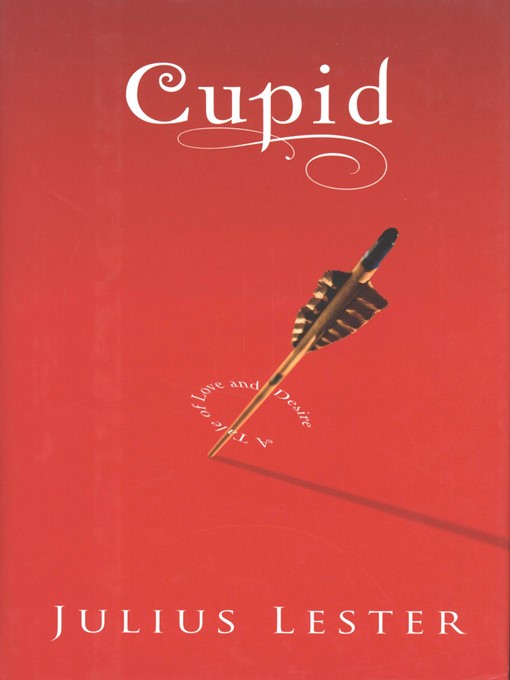
Cupid
فرمت کتاب
ebook
تاریخ انتشار
2007
Lexile Score
890
Reading Level
4-5
ATOS
6.2
Interest Level
6-12(MG+)
نویسنده
Julius Lesterناشر
HMH Booksشابک
9780547607450
کتاب های مرتبط
- اطلاعات
- نقد و بررسی
- دیدگاه کاربران
نقد و بررسی

December 4, 2006
Just in time for Valentine's Day, Lester (Time's Memory
) retells the tale of Cupid and Psyche, with appearances by some highly appealing lesser Greek and Roman characters, such as Oizys, goddess of pain, and the highly likeable Favonius, the West Wind, along with his other wind counterparts. Psyche comes across as especially sympathetic; her kindness is just as striking as her beauty. And even those familiar with the tale may be surprised at just how vindictive Psyche's jealous sisters can be, as they prompt Psyche to break her promise to Cupid (Cupid, who comes to Psyche only under cover of darkness, asks her to vow never to gaze upon his face or risk losing him forever). Unfortunately, the vague persona of the omniscient narrator here detracts from the pace and poetic details of the tale. The narrator reveals only tidbits of information about himself; for instance as he watches Psyche's wedding procession, he notes, "This reminds me of my weddings. At all six of them, the bride cried." He also conjures a rather contentious relationship with "the story," as when he raises the question of how it is that Psyche never detected Cupid's wings in all their nights of lovemaking: "I asked the story about it. The story scratched its head and looked very confused." Still, for fans of romance and mythology, this is highly entertaining. Lester casts the two protagonists as adolescents coming of age through the trials and ultimate triumph of their love. Ages 12-up.

January 1, 2007
Gr 7 Up-Psyche is a princess who is so lovely that people come to worship her instead of Venus, the goddess of love. When Venus hears that she has been usurped, she sends her son, Cupid, to shoot Psyche with one of his love-tipped arrows. However, once Cupid sees Psyche, he falls hopelessly in love. Not long after their clandestine marriage, Psyche's jealous sisters come to visit and plant a seed of doubt about her husband's identity, and the new bride's actions drive Cupid away. Her chance to redeem herself comes when Venus gives her a series of impossible tasks that she must complete to prove her love. As this tale begins, the style is humorous and promises a new and clever version of the myth, but the comedy peters out about halfway through. Although Lester explores the motivations and personalities of the players and introduces a few new gods and goddesses, the characters fall flat, and the final product is unimaginative. This retelling is interspersed with a self-conscious contemporary narrative that would work better as part of an orally told story. The novel does not hold up to Lester's masterful standard. It might be a good introduction for someone unfamiliar with the traditional myth and could be useful in a classroom, but those looking for an innovative retelling should look at Francesca Lia Block's "Psyche in a Dress" (HarperCollins, 2006) instead."Heather M. Campbell, Philip S. Miller Library, Castle Rock, CO"
Copyright 2007 School Library Journal, LLC Used with permission.

January 1, 2007
In this postmodern retelling of the tale of Cupid and Psyche, the storyteller discusses the writing process and his own love life within the ancient story. The storyteller fills in details the original text leaves out with a fanciful dialogue between himself and "the story": "I asked the story if it would mind my giving the place a name. It didn't see any harm." As Cupid falls into a forbidden love affair with a mortal, the storyteller interrupts with theories about relationships, which sometimes sound like therapyspeak: "To truly know another, you have to open yourself to being known." Teens may also be startled by the storyteller's candor: "Many men, your storyteller included, like to look at women's faces " and "bodies, and not necessarily in that order." Teachers may want to discuss Lester's literary devices: Is he the storyteller? What happens to the whole when the storyteller intrudes? Older teens who can take the narrator's intrusions in stride will sink into the beautifully imagined ancient world, the erotic romance, and the insights into how love happens.(Reprinted with permission of Booklist, copyright 2007, American Library Association.)

























دیدگاه کاربران